Winters are here and you definitely need to start looking for warm jackets and oversized hoodies. However, winters also call for the best vacations at the most famous destinations. With stunning winter tourist places in India, you get to see awe-inspiring sunrises and spellbinding night skies.
Eah Indian state has a heartwarming story to tell along with perfect destinations to host you. With Treebo hotels everywhere, you can experience a great stay at budget-friendly prices. After all, everyone wants to be treated with the best hospitality during getaways. It’s time to check amazing winter tourist places in India to book your tickets now!
Best Winter Tourist Places in India are –
1. Dalhousie
When thinking of one of winter tourist places in India, Dalhousie must be on the top of your list! This town is located at a high altitude to give you all the chills and thrills. Dalhousie is perfectly characterised by colonial-era buildings and churches with jaw-dropping architecture. Surprisingly, the destination offers various adventurous activities during the month of December.
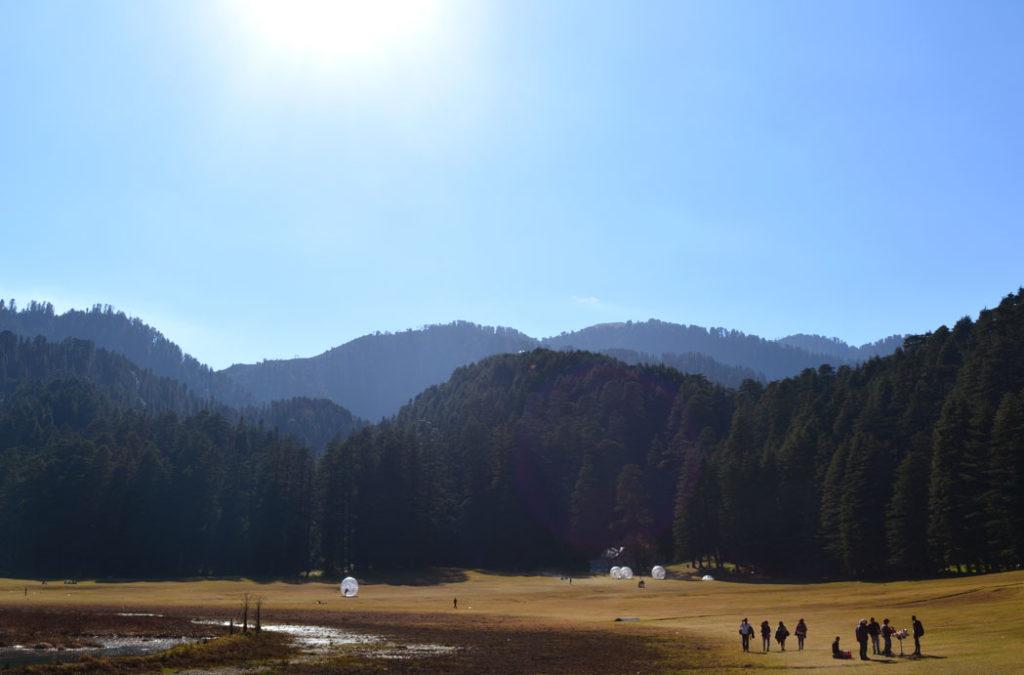
To enjoy the destination, you’ll find a plethora of hotels in Dalhousie that fit your pockets. Additionally, the destination offers a fusion of serenity and tranquillity with various nature trails and gardens. Buy souvenirs from the Indo Tibetan market and take home memories for life.
Temperature: 2°C to 13°C
Places to Visit: Khajjiar, Panch Pulla, Satdhara Falls, Rock Garden, Chamunda Devi Temple and Kalatop Wildlife Sanctuary
Things To Do: Trekking, exploring cafes, paragliding, river rafting, snowboarding and wildlife exploration
2. Shimla
As December begins, the snow-capped mountains of Shimla await your presence. Being one of the best places to visit in December, the city of Shimla wraps itself in the blanket of warmth through bonfires amidst the chill weather. Along with this, you get to experience heavenly views of the city through the best hotels in Shimla.
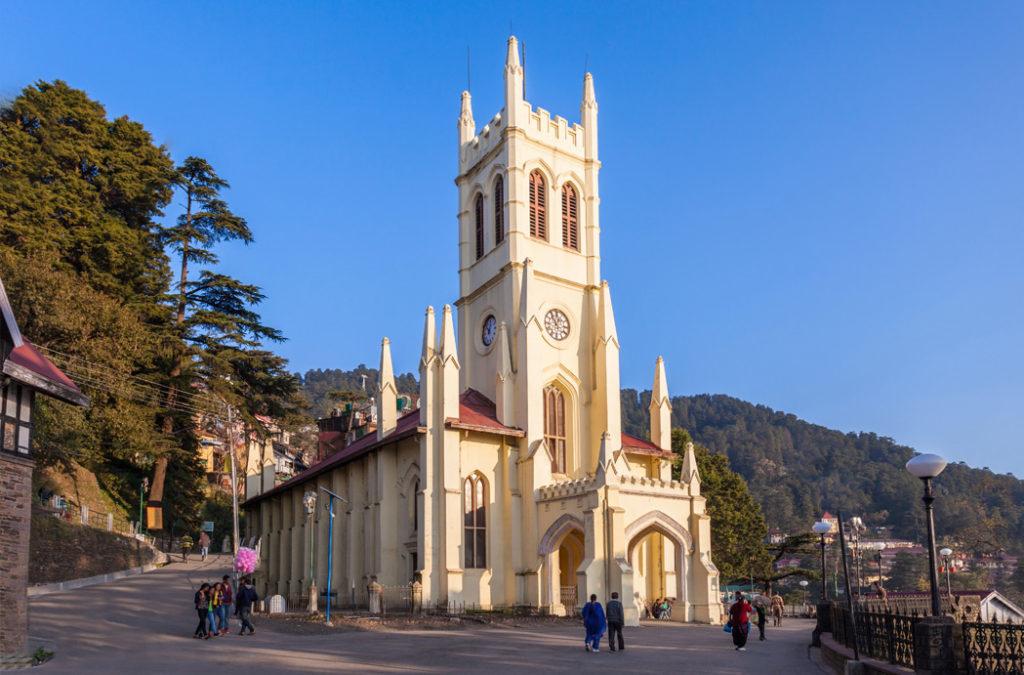
Guess what? Shimla welcomes you to taste hot maggi, momos, thukpa soup and fresh fruits. The city is perfect for families, couples and solo travellers looking for authentically peaceful vibes. As mountains are filled with snow, you can indulge in various adventure spots. Street markets are also amazing to shop traditional handicrafts, woollen wear and bags.
Do not miss this! EVERYWHERE ICE & EVERYTHING LOOKS NICE! CHECKOUT THE BEST SNOWFALLS IN SHIMLA
Temperature: 4°C to 13.9°C
Places to Visit: Kali Bari Mandir, Mall Road, Christ Church, Army Heritage Museum, Viceregal Lodge Botanical Gardens, Gorton Castle and the Himachal State Museum
Things To Do: Trekking, street shopping, snow sports and camping
3. Binsar
How can you miss romancing with the Snow capped mountains in Binsar? The season cannot be completed without visiting one of the ideal winter tourist places in India. Located at a high altitude, Binsar is all about chill vibes, nature and amalgamation of snow and sun! The destination itself speaks of its beauty with spellbinding views through the windows of Hotels.
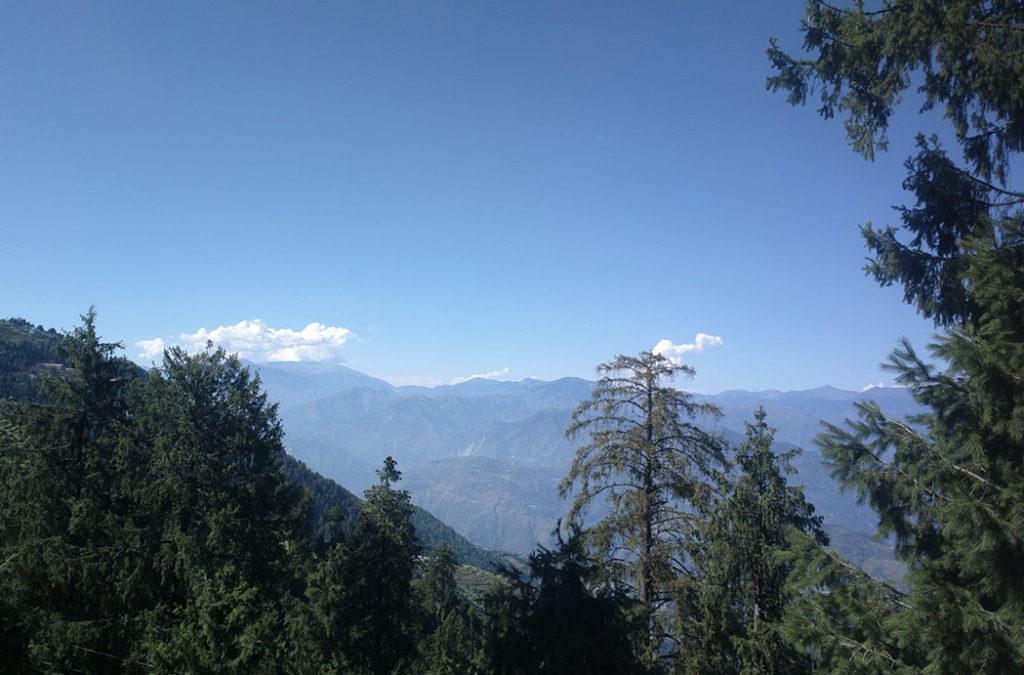
The tricky terrain of Binsar lets you wake up with a panoramic view of the mountains and also lets you sleep after stargazing sessions. It offers an enchanting opportunity to hear the birds chirping and winds dashing with the mountains. Take this chance to go away from the hustle only to watch the beauty of magical landscapes here.
Temperature: 2°C to 21°C
Places to Visit: Binsar zero point, Kasar Devi Temple, Chitai Golu Devta Temple, Binsar Wildlife Sanctuary, Jageshwar Dham, Katarmal and Bineshwar Mahadev Temple
Things To Do: Bird watching, walking through flora and fauna, trekking and camping under the stars
4. Mukteshwar
Don’t you always wish to run away at a quaint place where all you have are your thoughts? Your dream is to come true! Mukteshwar is one of the stunning winter tourist places in India. It is a scenic village located in the state of Uttarakhand.
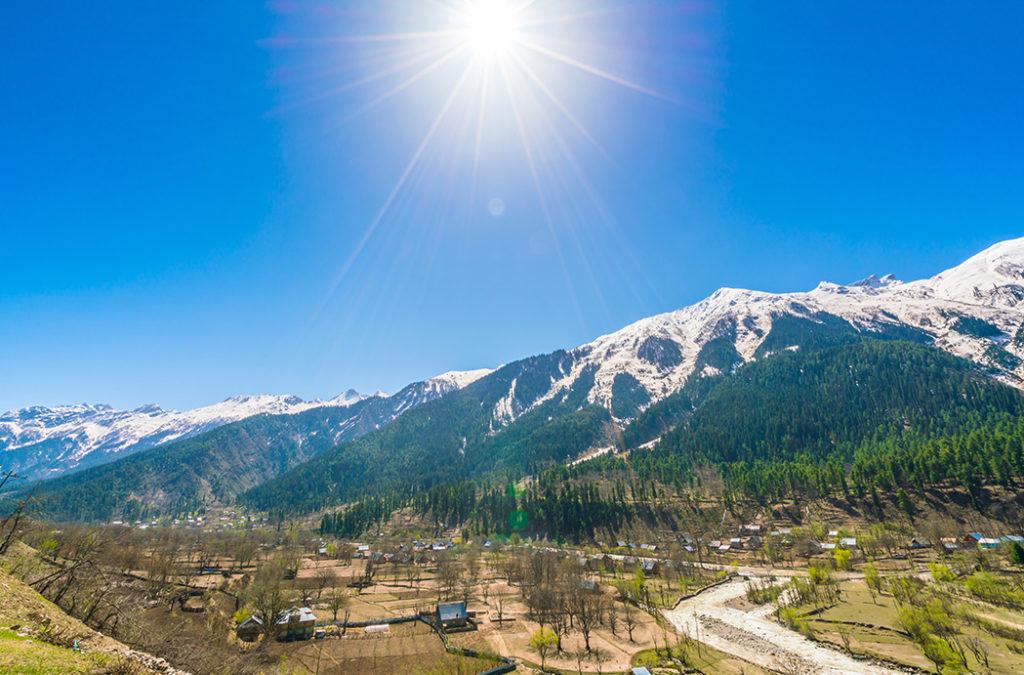
With fruit orchards and coniferous forests, the destination takes you to your childhood fairytale! With various hotels in Mukteshwar, you get to choose your ideal getaway. You can either opt to lounge in comfortable linen beds or say hello to adventure here.
Temperature: 2°C to 13.9°C
Places to Visit: Mukteshwar Dham temple, Chauli ki Jali, Mukteshwar Mahadev temple and Nanda Devi peak
Things To Do: Spotting luxuriant vegetation, trekking, photography, rock climbing and paragliding
5. Srinagar
The summer capital of Jammu and Kashmir is way more beautiful during winters. Srinagar welcomes you to witness glorious mornings and healing sunsets. With the perfect backdrop of mountains, it happens to be one of the amazing winter tourist places in India. The city is popular for its gardens, lakes and houseboats (shikhara).
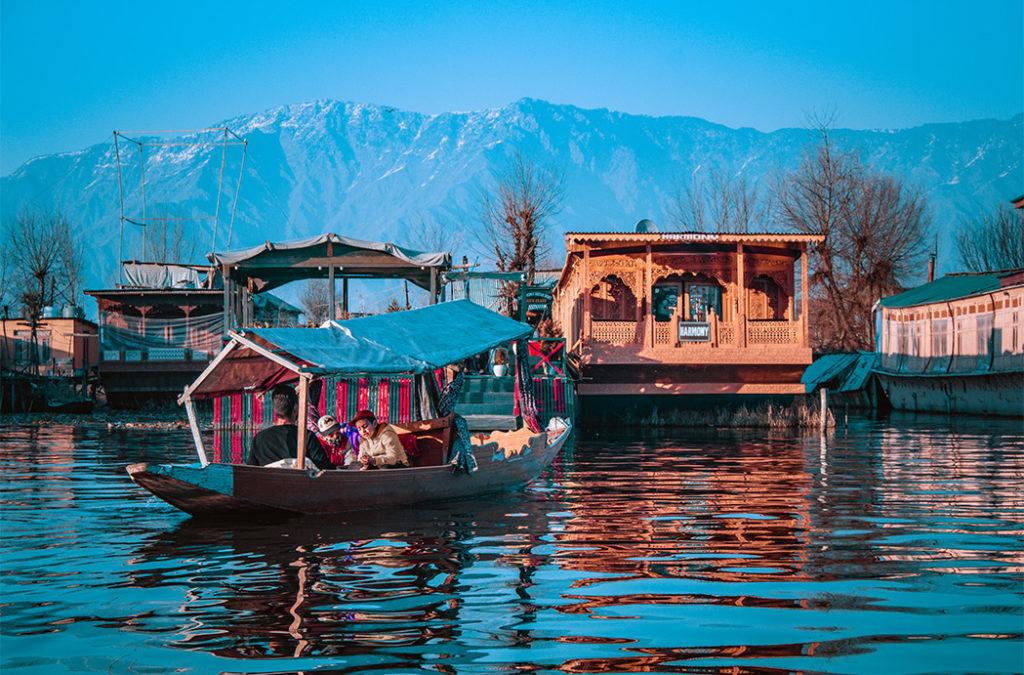
As Srinagar experiences a fusion of cultures, various structures stand as an evidence to it. December invites you to witness unbeatable hospitality in various hotels in Srinagar along with kind hearted people around. Surrounded by waters, you can go for river rafting and shikara rides here.
Go for an exciting time! THE COMPLETE GUIDE TO A ROAD TRIP FROM SRINAGAR TO LEH
Temperature: -2°C to 10°C
Places to Visit: Dal lake, Shalimar Bagh Mughal garden, Pathar Mosque, Chashme Shahi and Nigeen lake
Things To Do: Hot air balloon rides, photography, shopping, shikara rides, trekking, skiing and golfing
6. Nagaon Beach
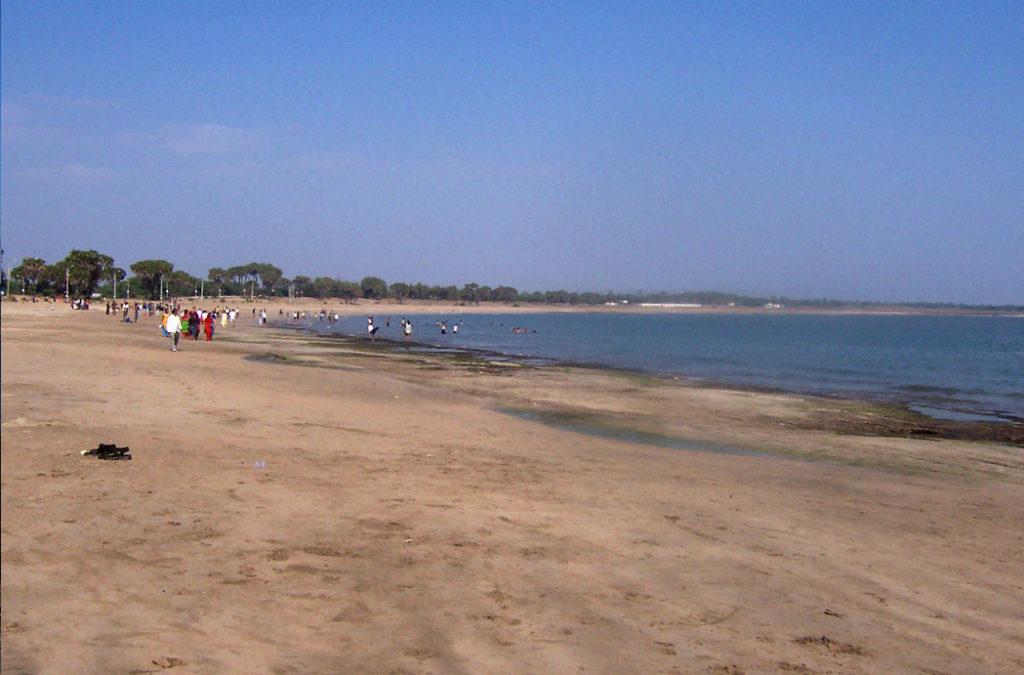
Do we have the water babies here? Nagaon Beach is one of the offbeat winter tourist places in India for an enthralling time. Located in the state of Maharashtra, you need to sail through the waters to reach Nagaon Beach. The beach is close to Alibaug making it a popular destination for sunbathing and water sports. Needn’t be worried to find hotels in Nagaon Beach as Treebo offers budget-friendly deals. The beach is best known for its cleanliness and peaceful environment.
Temperature: 20°C to 24°C
Places to Visit: Mahalaxmi temple, Shree Jyotirlinga Devasthan, Rankala lake and Siddhagiri museum
Things To Do: Parasailing, water tubing, boating, banana ride, scuba diving, bumper ride, cliff leaping and kayaking
7. Mylapore
Looking to venture at one of the offbeat winter tourist places in India? We bring you Mylapore! Located in the central part of Chennai, Mylapore is popular for Kapaleeswarar temples and Ramakrishna Math. Known for multiple sacred sites, the destination attracts pilgrims from different walks of life.
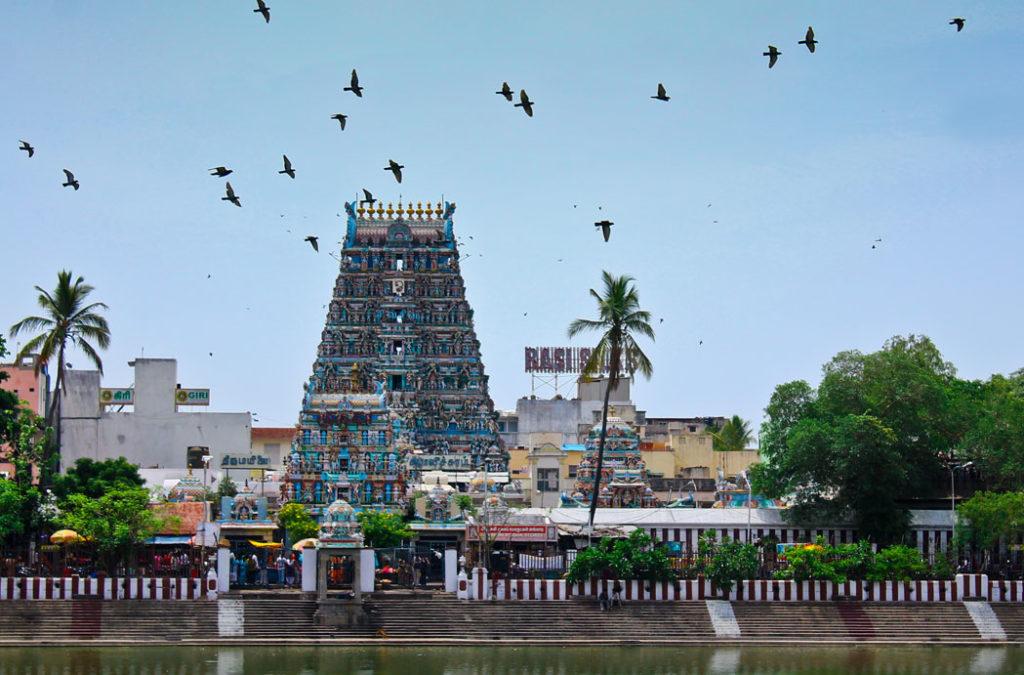
You get to spot a fusion of architecture as many structures date back to the colonial era. As you witness the typical South Indian art galleries and structures, do not forget to look for the best hotels in Mylapore for a comfortable stay.
Temperature: 18°C to 24°C
Places to Visit: Arulmigu Sri Pachai Pattu Kolavizhi Amman, Chennai lighthouse, our Lady of Light Shrine, Anna Flyover Bridge, Gandhi Beach, Nochikuppam Beach, Gandhi statue, Sri Vedantha Desikar temple, Thiruvalluvar temple and Apparswamy temple
Things To Do: Heritage and cultural walks, mountain camping, surfing, rock climbing, paragliding and trekking
8. Andaman & Nicobar
Isn’t your heart constantly telling you to look for the best hotels in Andaman and Nicobar islands to move away from the routine? This season, go to the place that tops the list of winter tourist places in India. The state is home to more than 300 islands along with their azure waters and adventure sports.

It’s a win if you are an adventure junkie because snorkelling is all about spotting sharks and rays here! Moreover, long stretches of white sand beaches set your heart to the mode of solace like never before. Witness biodiversity and set your heart to play with the wild underwater!
For an added convenience, check out A TOUR GUIDE TO THE ANDAMAN AND NICOBAR ISLANDS
Temperature: 23°C to 29°C
Places to Visit: Radhanagar Beach, Havelock Island, Mount Harriet National Park, Chidiya Tapu Beach and Barren Island
Things To Do: Swimming, snorkelling, mangrove kayaking, exploring limestone caves and photography
9. Rann of Kutch
What if a destination promises to take your breath away? Rann of Kutch is one of the promising winter tourist places in India for an unbelievable time. The massive land of cracked earth invites tourists to witness the wonder of salt marshes. You can check-in to hotels in Bhuj as it is nearly (80 Km) from the main Rann of Kutch.
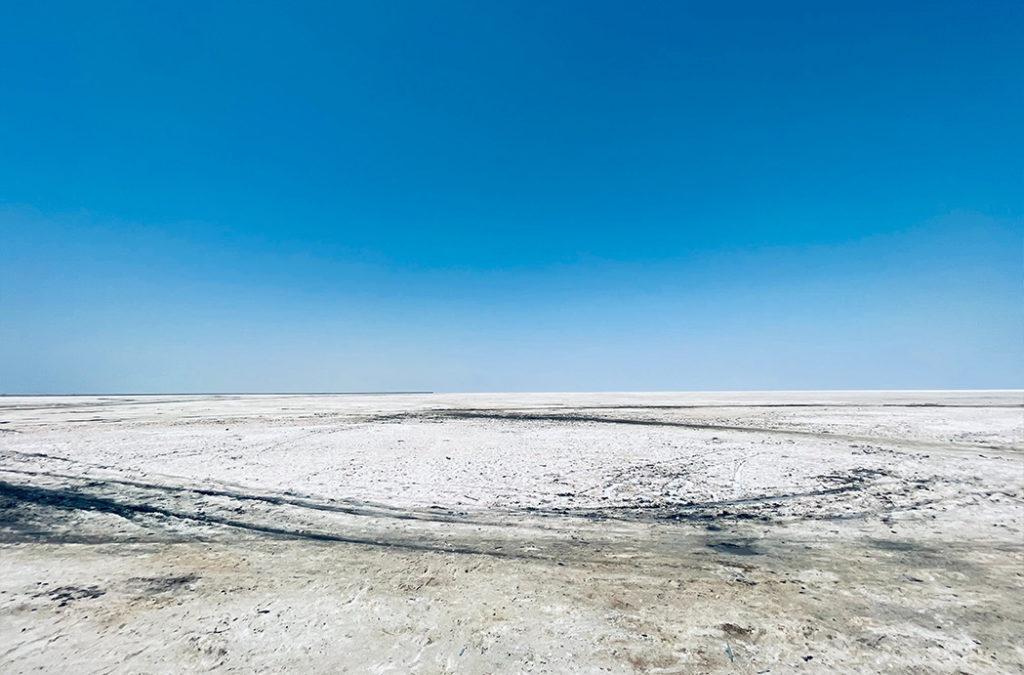
Even after being in the list of best winter tourist places in India, Kutch is more popular for its Utsav (festival). The Rann of Kutch Utsav is a huge festival that allows you to stay in tents, indulge into dance and music and savour the flavours of Gujarat. The unbeatable hospitality and planning of the festival goes beyond your thinking!
Temperature: 12°C to 25°C
Places to Visit: Kutch Wildlife Sanctuary, Kutch Museum, Dholavira, Aaina Mahal Palace, Vijay Vilas Palace, Kalo Dungar and Prag Mahal
Things To Do: Camel rides, stargazing, camping, dancing, wildlife exploration and photography
10. Udaipur
Have you been looking for an amalgamation of palaces and history that dates back to the ancient times? If yes, Udaipur is one of the best winter tourist places in India. The city glows in the months of winters with lush greenery and serene lakes. Humans here get ready for preparation of palatable food dishes cooked during the season.

Moreover, the city offers bustling shopping streets with Rajasthani handicrafts, puppets and beautiful souvenirs. If you plan to visit Udaipur, do not forget to take a stroll by Lake Pichola. The city is insanely popular for divine temples, ghats and significant museums. Find hotels in Udaipur as you would love to dine under the stars facing the jaw-dropping city views.
Also check out PUSHKAR MELA 2022: A COMPLETE GUIDE TO ENJOY FAIR AND CULTURAL ELEGANCE
Temperature: 7°C to 25°C
Places To Visit: City Palace, Sajjangarh Monsoon Palace, Lake Pichola, Ahar Museum, Sajjangarh Wildlife Sanctuary, Tiger Lake, Kumbhalgarh Fort, Jagmandir and Fateh Sagar Lake
Things To Do: Photography, trekking, joyride, boating and ropeway
11. Cherrapunji
Meghalaya, the magical destination is home to one of the must-visit winter tourist places in India. Cherrapunji is an amazing town ready to astonish you with its live root bridges. The town also comes in the list of the wettest places on Earth.

With the fusion of beauty and quaint surroundings, you can literally dive into the carefree vibes of this place. Cave exploration is also one of the popular activities in Cherrapunji. One of the happiest winter tourist places in India is set to make your heart go crazy with its enriching nature.
Do not miss out checking the TOP 10 MAGICAL PLACES TO VISIT IN MEGHALAYA THAT WILL TAKE YOUR BREATH AWAY
Temperature: 6°C to 18°C
Places to Visit: David Scott Memorial Stone, Diengdoh Woods, Mawsmai Nongthymmai Eco Park, NohKaLikai Falls, Kynrem Falls, Dainthlen Falls, Rainbow Falls and Wei Sawdong Falls
Things To Do: Boating, walking through live root bridges and cave exploration
12. Jodhpur
The beats of raw Indian music and authentic food prepared with spices, that’s Jodhpur for you! Situated in Rajasthan, it is one of the prime winter tourist places in India for a rejuvenating time. Jodhpur is best known for its magnificent palaces, age-old forts, bustling markets and handicraft industry.
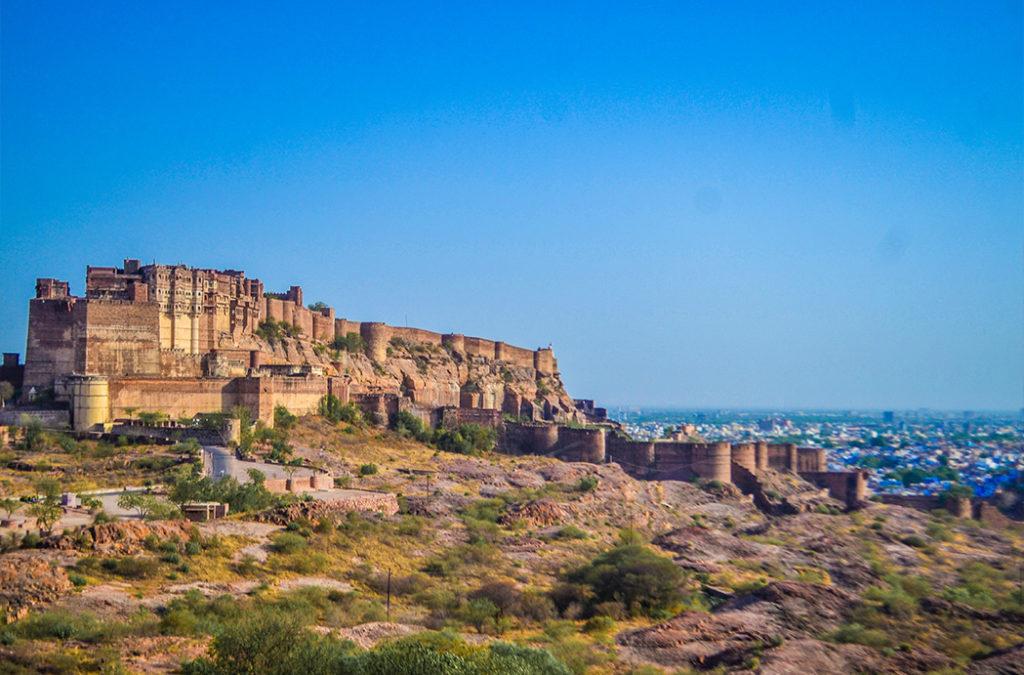
Hotels in Jodhpur happily welcome couples, families, friends and solo travellers. With a huge influence of Rajasthani culture, you can witness it through iconic performances, singing and vibrant festivals. Jodhpur is indeed a stimulating destination with history, culture and greenery.
Temperature: 10.8°C to 25°C
Places to Visit: Umaid Bhawan Palace, Jaswant Thada, Mehrangarh Fort and Museum, Mandore Garden, Toorji Ka Jhalra and Bal Samand Lake
Things To Do: Exploring forts, horse riding, camel rides, boating and rooftop dining
13. Gokarna

Winters are all about getting cosy inside warm blankets at the best hotels in Karnataka. You must be surprised but Gokarna is one of the major winter tourist places in India. With a plethora of pristine waters, this town in Karnataka attracts tourists to enjoy the beach waters, sand and the beautiful sunsets. Interestingly, each beach offers a completely different experience and view. It’s time to seek peace at the magical destination for couples and families.
Temperature: 21°C to 30°C
Places to Visit: Half Moon Beach, Kudle Beach, Gokarna Main Beach, Om Beach, Mahabaleshwara Swami temple and Paradise beach
Things To Do: Gogarbha cave exploration, swimming, bumper boat riding, scuba diving, jet skiing, cave exploration and surfing
14. Sikkim
Once you step in the northeast state of Sikkim, you are sure to leave a piece of your heart here. It is ideally one of the amazing winter tourist places in India for a heartwarming getaway. Bordered by Bhutan, Nepal and Tibet, you get to view different cultures, languages and landscapes in Sikkim.
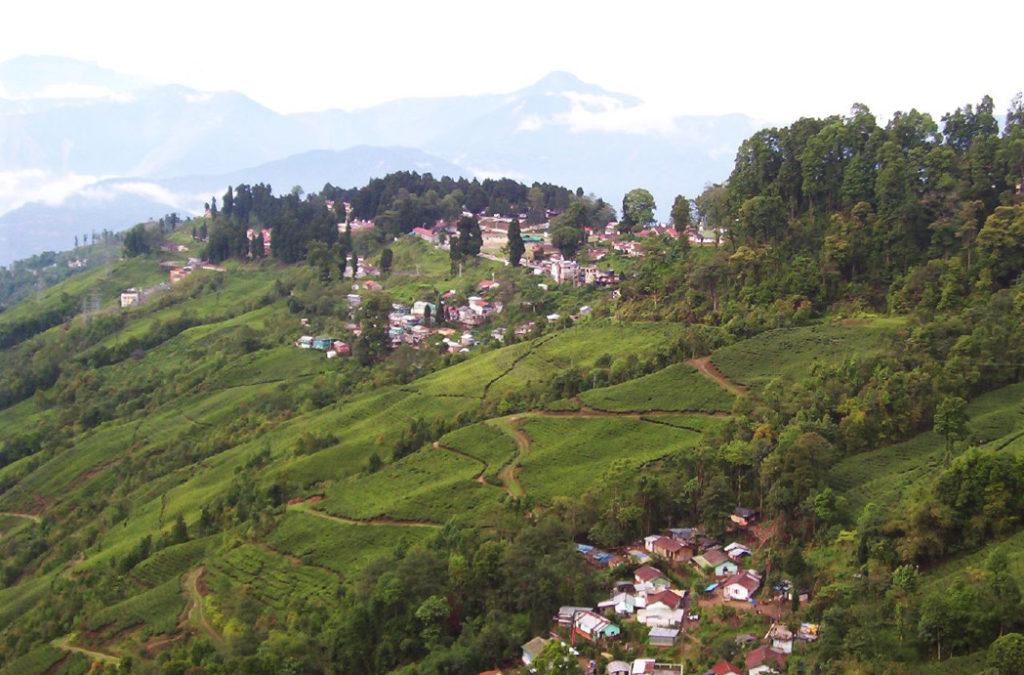
With various trekking expeditions, tourists are also attracted to camping and wildlife exploration. Check out hotels in Sikkim as you would love to rest after a tiring day. Due to the high influence of cultures, Sikkim is home to multiple monasteries. Additionally, you can visit these monasteries for meditation, solace and viewing the world through a different perspective.
Temperature: 1°C to 10°C
Places to Visit: Pemayangtse Monastery, Rumtek Dharma Chakra Centre, Nathula pass, Tsomgo Cho, Khangchendzonga National Park, Khecheopalri lake, Tashi View Point, Goecha La and Gurudongmar lake
Things To Do: Trekking, helicopter rides, hot springs, river rafting, bird watching and cable car ride
15. Alleppey
Situated in the state of Kerala, Alleppey is the perfect destination for solace and greens. The city is popular for clean beaches and a long network of serene lagoons. It is one of the ideal winter tourist places to visit in India to bid goodbye to the blues of the year. With various hotels in Alleppey, you can easily plan your stay with maximum savings!

When in Alleppey, you cannot miss all the grandeur of houseboats. The city is home to various mystical temples and museums. If you are an adventure junkie, Alleppey offers various adventure activities. You also get to taste palatable food dishes of the state!
Temperature: 22°C to 31°C
Places to Visit: Marari beach, Alappuzha beach, Alleppey lighthouse and Krishnapuram palace
Things To Do: Zorbing, scuba diving, kayaking, jet skiing and surfing
With the best winter tourist places in India, get ready to be cosy in warm jackets. It is that time of the year when you order hot coffee and breathe in the fresh air away from your everyday life!


















